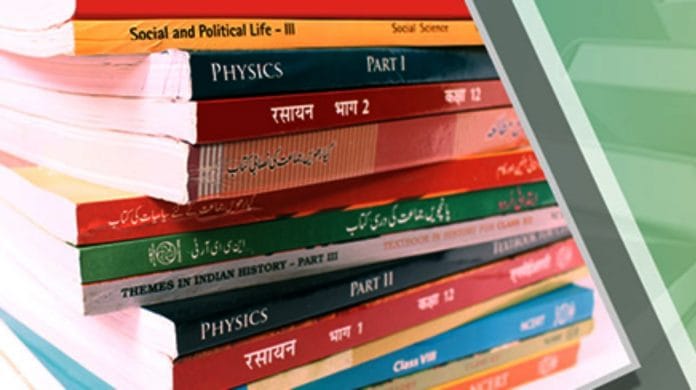New Delhi: The scrapping of Article 370 in Jammu and Kashmir last August has now been included in the revised Class 12 political science textbook of the National Council for Educational Research and Training (NCERT).
The revised textbook — ‘Politics of India since Independence’ — a copy of which has been seen by ThePrint, talks about the scrapping of Article 370 in the chapter, ‘Regional Aspirations’. The textbook has been revised for the 2020-21 academic session.
The revised portion, where the chapter talks about Jammu and Kashmir, says J&K had a special status under Article 370 of the Indian Constitution. However, “in spite of it, the region witnessed violence, cross-border terrorism and political instability with internal and external ramifications”.
It also says the Article “resulted in the loss of many lives, including that of innocent civilians, security personnel and militants. Besides, there was also a large scale displacement of Kashmiri Pandits from the Kashmir valley”.
ThePrint reached the spokesperson of the Ministry of Human Resource Development via email for an official comment on this, but there was no response till the publication of this report.
Also read: NCERT textbooks to turn smarter with QR codes, syllabus set to be revised
Portion on Kashmir ‘separatists’ deleted
A portion from the chapter, called the ‘Separatism and Beyond’, which talked about categories of separatists in J&K, has been deleted.
One of the deleted paragraphs said: “One strand of separatists who want a separate Kashmiri nation, independent of India and Pakistan. Then there are groups that want Kashmir to merge with Pakistan. Besides these, there is a third strand, which wants greater autonomy for the people of the State within the Indian union.”
The revised textbook takes into account the developments that took place in Jammu and Kashmir from 2002 onward.
It talks about the Mufti Mohammed-headed coalition government run by the People’s Democratic Party (PDP) and the Congress. It then goes on to talk about National Conference leader Omar Abdullah’s term as the chief minister and then about Mehbooba Mufti’s term.
The book adds that “major acts of terrorism, mounting external and internal tensions were witnessed” during Mehbooba Mufti’s tenure.
‘J&K, Ladakh living examples of plural society’
The book then talks about the President’s Rule imposed in June 2018 after the BJP withdrew support to the Mufti government, and towards the end mentions the witdrawal of Article 370.
“On 5 August 2019, Article 370 was abolished by the Jammu & Kashmir Reorganisation Act 2019 and the state was constituted into two Union Territories, viz., Jammu & Kashmir and Ladakh. Jammu & Kashmir and Ladakh are living examples of plural society in India,” the book adds.
The chapter also talks about autonomy, “often outside the framework of the Indian Union”, besides movements that frequently involved armed assertions by the people, their repression by the government, and a collapse of the political and electoral processes.
The other regions that the chapter talks about are Punjab and the Northeast.
Also read: Focus on migrants’ kids, call hostel residents in batches, says NCERT on reopening schools







Wise step taken by NCER